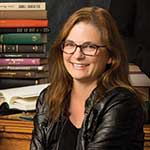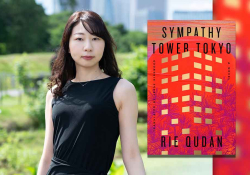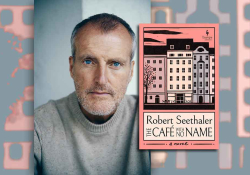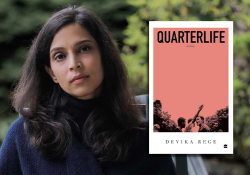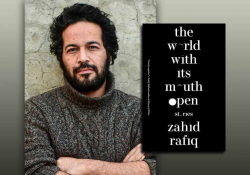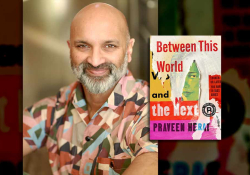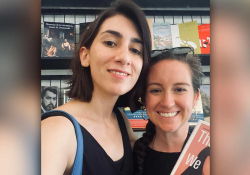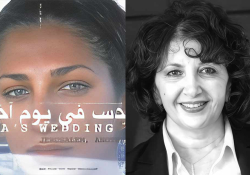“Finding Affinities”: 8 Questions for Alice-Catherine Carls

Alice-Catherine Carls is an internationally published diplomatic and cultural historian of twentieth-century Europe, a translator, and a literary critic. She has reviewed books in the pages of WLT since 1979, making her one of our longest-running reviewers.
Q
First, thank you for your many contributions to WLT. You have helped shape our pages in many ways for forty-six years. What makes a good review?
A
If I had a penny for every time I asked myself that question, I would be a billionaire. Seriously, it is all about balance. There are many factors to consider before starting the review, such as the journal’s requirements and recommendations, the reviewer’s familiarity with the author’s work in general and with the work under review, the reviewer’s method (reading, note-taking, and assessment), and the reviewer’s experience. A good review is one for which the reviewer has considered all these factors and has either a plan or a leading idea before starting to read the book. This being said, the reviewer must remain alert and open-minded at all times and be prepared to be surprised and delighted when reading the work to be reviewed.
Q
Are there people you think write reviews particularly well?
A
There are so many outstanding reviewers—too many to list. The best reviewers are those who understand a book and give a focused, undistorted image of it. Good reviewers have their own style, which you can recognize immediately. Good reviewers are specialists in their field. Besides, one is not born a book reviewer. It is a process; it takes a village. I want to give credit to two superb book review editors to whose gentle mentoring I owe a lot: David L. Ransel at Slavic Review and World Literature Today’s own William (Bill) Riggan. They never tried to change what I was writing, but they taught me to write it better. I am the lucky one here; and I have loved every minute of my association with WLT.
The best reviewers are those who understand a book and give a focused, undistorted image of it.
Q
How has the culture of book reviewing changed since you began reviewing?
A
Having had reviews published in several fields (fiction, poetry, history, political science/international relations, literary history/theory) in more than half a dozen countries, I have seen it all and practiced a variety of book review formats, from fifty words to eight pages, including the Choice model. I have observed that every country has its own “serious” book review culture that is changing very little.
Technology has changed everything, though, as it has made it possible to integrate book reviews into a broader network of knowledge. Online reviews can be longer and include the author’s bio, photos of the book cover, excerpts of the book under review, recordings of readings or other performances, and links for further information. Also, reviews are published much faster today than they used to be.
The biggest change has come through social media and Amazon; these sites have democratized review writing and birthed a hybrid model that is more subjective and limited than the traditional, professional book reviews.
Q
How much influence do book reviews have on what you choose to read? Have you ever abandoned a book you intended to read based on a review? Ever decided to read a book based on a review?
A
Book reviews used to have an enormous influence on me for choosing new books to read. Today, book reviews are very useful when I want to read a work from a culture I am less familiar with. I have never abandoned a book based on a review.
Q
Author Helen Fielding said this in the New York Times earlier this year: “I’ve got into terrible trouble for giving quotes for book covers. My quote once got a bad review: ‘There is only one thing wrong with this novel—the cover quote from Helen Fielding. Whilst it is true, it is also trite.’” Have you ever been on the receiving end of a review of a review?
A
Yes, once. It was not as sound-bite sharp as the criticism addressed to Helen Fielding, but it hurt. It was not so much the criticism that hurt—a healthy dialogue is to be expected; it was the wording of it. I do hope that Helen Fielding took the word “trite” with a grain of salt and shrugged it off!
Q
Where do book blurbs fit into the reviewing ecosystem?
A
Too much hype kills a good book. But there are some excellent and thoughtful blurbs out there too . . .
Q
As a writer and translator, your work has been the subject of reviews. Do you read reviews of your work? How do you find yourself reacting to them?
A
A reviewer who takes the time to read my work deserves a medal! I guess most reviews of my work are positive. Translators, however, are seldom mentioned in reviews. I always learn from a review of my work and remember the reviewer’s culture. French reviewers, for example, can be very harsh in their judgment. Polish reviewers are extremely detailed, which makes their reviews very helpful.
Reviewing is all about finding affinities with a book and helping spread the web, echoes, and resonances that keep writing alive.
Q
Has the experience of being reviewed impacted you as a reviewer?
A
As a reviewer, I first and foremost respect and value the community that makes the publication of a book possible—the author, the agent, the editor(s), the publisher, the printer, the publicists, the book packers, the truckers, the clerical staff—a lot of hard work and risk is involved in publishing a book. As for the impact of reviews of my work, they have been minimal simply because I am not aware of many. I evaluate the impact of my work through other factors: how long my books stay in print and continue to sell, or how many writers and scholars cite it. I have learned more about being a reviewer from reading book reviews and understanding the book review culture in general.
Together, all these experiences have taught me to choose my words carefully and be kind. I have learned the importance of feeling validated by a review. I always try to catch the essence of a book, its leading message. My greatest reward is to receive a note from an author telling me that my review made them see something new in their work or gave them new inspiration. Reviewing is all about finding affinities with a book and helping spread the web, echoes, and resonances that keep writing alive. That challenge is what keeps me writing book reviews.

